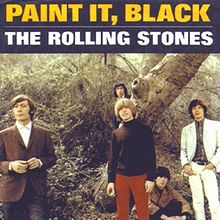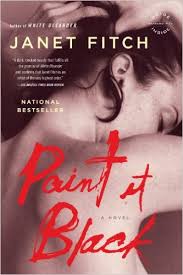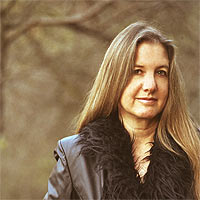Paint It Black
Paint It Black, The Song, and The Novel
A Review of Paint It Black, a novel by Janet Fitch
 Happy Friday the 13th. Today marks the 50th anniversary of the Rolling Stones release of their iconic song “Paint It Black.” I couldn’t think of a better way to celebrate this anniversary than with a brief discussion of the song, and since Late Last Night Books is a literary blog, include a review of Janet Fitch’s 2006 best selling novel by the same name.
Happy Friday the 13th. Today marks the 50th anniversary of the Rolling Stones release of their iconic song “Paint It Black.” I couldn’t think of a better way to celebrate this anniversary than with a brief discussion of the song, and since Late Last Night Books is a literary blog, include a review of Janet Fitch’s 2006 best selling novel by the same name.
Astute readers will notice the album cover has a coma between “It” and “Black.” Grammarians among us will interrupt this to mean a man by the name of Black is being instructed to paint “It”…whatever “It” is. This must have been to the great consternation of Mick Jagger and Keith Richards, the songwriters, who properly did not include the comma in the song’s title. It’s also worth noting that the title phrase does not appear in the song. The lyric is “I see a red door and I want it painted black.”
The song is heavily associated with the Vietnam War, and has great meaning for many combat veterans from that war. The song was also used in the film Full Metal Jacket, and the television series Tour of Duty, both about the Vietnam War.
While the song is not about war, it is easy to see why war veterans are drawn to it. The song’s viewpoint is from a depressed person who wants everything painted black to match his mood. “I see a line of cars painted black.” It doesn’t take much to conclude this is a funeral procession. The lyrics go on to suggest an unexpected and sudden death, and include a vague reference to heaven.
And for all these reasons, it makes a perfect title for Ms. Fitch’s novel.
Paint It Black is set in the 1980’s punk rock scene of LA. It begins with the unlikeable protagonist, Josie Tyrell, a nude model, in a frustrating pose for her artist, and a heightened state of frustration at the repetitive sound of John Lennon and Yoko Ono performing “Double Fantasy.” Lennon has just been murdered and the world is in mourning. Josie is a rough girl with a troubled background from Bakersfield, CA, who believes she’s found the path to love and happiness with boyfriend, Harvard dropout, and artist, Michael Faraday. Faraday’s mother is a world-renowned pianist, his grandfather a legendary composer.
Everything changes for Josie when she receives a call from the Los Angles County Coroner’s office. She has to identify the body of Michael Faraday.
Michael has killed himself. As often happen in deaths by suicide those remaining behind blame themselves. Meredith, Michael’s mother, says to Josie, “you loved him, but you didn’t love him enough to save him.” Josie and Meredith engage in a battle of blame before reconciling over their mutual love for Michael.
Eventually Josie breaks away from Meredith in search of resolution, and travels to the stark desert town of Twentynine Palms, and the seedy motel where Michael put a .38 to his mouth and ended his life. What would she find? What would she learn?
 Ms. Fitch deftly plays out Elisabeth Kubler-Ross’ Five Stages of Grief that Josie endures in her pursuit of trying to learn the why’s of Michael’s death.
Ms. Fitch deftly plays out Elisabeth Kubler-Ross’ Five Stages of Grief that Josie endures in her pursuit of trying to learn the why’s of Michael’s death.
Suicide is a familiar theme with Ms. Fitch; she touches on it in her best-selling coming-of-age novel, White Oleander. In Paint It Black suicide is the fuel that drives the story.
Michael J. Tucker
Growing up in the cold northern climate of Pittsburgh, PA, and an only child, Mike was often trapped indoors and left to his own devices, where he would create space ships out of cardboard boxes, convert his mother’s ironing board into a horse and put on his Sunday suit and tie and his father’s fedora and become a newspaper reporter or police detective. This experience left him with an unlimited imagination and the ability to write electrifying short stories and novels.
Mike is the author of two critically acclaimed novels, Aquarius Falling and Capricorn’s Collapse. He has also published a collection of short stories entitled, The New Neighbor, and a poetry collection; Your Voice Spoke To My Ear. His poem, The Coyote’s Den, was included in the Civil War Anthology, Filtered Through Time.
He is a judge for the Janice Keck Literary Award, and the moderator of the Williamson County Library Writers’ Critique Group.
Reviewers of Mike’s novels have compared his writing to: Thomas Wolfe’s I Am Charlotte Simmons, and J. D. Salinger’s Catcher in the Rye. Albert Beckus, Professor Emeritus of Literature at Austin Peay University recently wrote of his novels: “They move naturalistically in the American literary tradition of Theodore Dreiser’s An American Tragedy, but with a twist…as found in The Great Gatsby.”
- Web |
- More Posts(22)